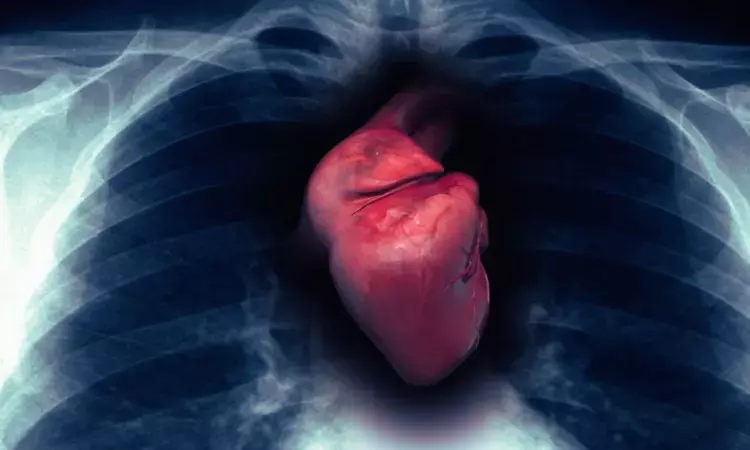- Home
- Medical news & Guidelines
- Anesthesiology
- Cardiology and CTVS
- Critical Care
- Dentistry
- Dermatology
- Diabetes and Endocrinology
- ENT
- Gastroenterology
- Medicine
- Nephrology
- Neurology
- Obstretics-Gynaecology
- Oncology
- Ophthalmology
- Orthopaedics
- Pediatrics-Neonatology
- Psychiatry
- Pulmonology
- Radiology
- Surgery
- Urology
- Laboratory Medicine
- Diet
- Nursing
- Paramedical
- Physiotherapy
- Health news
- Fact Check
- Bone Health Fact Check
- Brain Health Fact Check
- Cancer Related Fact Check
- Child Care Fact Check
- Dental and oral health fact check
- Diabetes and metabolic health fact check
- Diet and Nutrition Fact Check
- Eye and ENT Care Fact Check
- Fitness fact check
- Gut health fact check
- Heart health fact check
- Kidney health fact check
- Medical education fact check
- Men's health fact check
- Respiratory fact check
- Skin and hair care fact check
- Vaccine and Immunization fact check
- Women's health fact check
- AYUSH
- State News
- Andaman and Nicobar Islands
- Andhra Pradesh
- Arunachal Pradesh
- Assam
- Bihar
- Chandigarh
- Chattisgarh
- Dadra and Nagar Haveli
- Daman and Diu
- Delhi
- Goa
- Gujarat
- Haryana
- Himachal Pradesh
- Jammu & Kashmir
- Jharkhand
- Karnataka
- Kerala
- Ladakh
- Lakshadweep
- Madhya Pradesh
- Maharashtra
- Manipur
- Meghalaya
- Mizoram
- Nagaland
- Odisha
- Puducherry
- Punjab
- Rajasthan
- Sikkim
- Tamil Nadu
- Telangana
- Tripura
- Uttar Pradesh
- Uttrakhand
- West Bengal
- Medical Education
- Industry
Novel risk score accurately predicts death without transplant in patients awaiting heart transplantation: JAMA

USA: A recent study has revealed that the novel US-Candidate Risk Score (US-CRS) may be useful in accurately predicting the risk of death in patients awaiting heart transplantation. The study findings were published online in the Journal of the American Medical Association (JAMA) on February 13, 2024.
In the registry-based study of 16 905 heart transplant candidates, the US-CRS based on required laboratory and clinical variables outperformed the current treatment-based categorical allocation system in identifying medically urgent candidates at the highest risk of death without transplantation.
In the United States, there were reportedly 4,500 heart transplantations performed in 2023, a number that has been steadily increasing for at least ten years. Despite the rising number of transplantations, donor hearts remain hard to come by, which has led the Organ Procurement and Transplantation Network (OPTN) to prioritize patients who are at high risk of death unless they receive a new heart.
The US heart allocation system prioritizes medically urgent candidates at a greater risk of dying without a transplant. The current therapy-based 6-status system is susceptible to manipulation and has limited rank-ordering ability.
Against the above background, Kevin C. Zhang, Department of Medicine, University of Chicago, Chicago, Illinois, and colleagues aimed to develop and validate a candidate risk score that incorporates current laboratory, clinical, and hemodynamic data.
For this purpose, they conducted a registry-based observational study of adult heart transplant candidates (aged ≥18 years) from the US heart allocation system listed between 2019 and 2022, split by centre into training (70%) and test (30%) datasets.
A US candidate risk score model was developed by adding a predefined set of predictors to the current French Candidate Risk Score (French-CRS) model. The researchers performed sensitivity analyses, which included percutaneous ventricular assist devices (VAD) and intra-aortic balloon pumps (IABP) in the definition of short-term mechanical circulatory support (MCS) for the US-CRS.
The time-dependent area under the receiver operating characteristic curve (AUC) was used to evaluate the performance of the US-CRS model, French-CRS model, and 6-status model in the test dataset for death without transplant within 6 weeks and overall survival concordance (c-index) with integrated AUC.
The researchers reported the following findings:
- 16 905 adult heart transplant candidates were listed (mean age, 53 years; 73% male; 58% White); 4.7% of patients died without a transplant.
- The final US-CRS contained time-varying short-term MCS (ventricular assist–extracorporeal membrane oxygenation or temporary surgical VAD), the log of bilirubin, estimated glomerular filtration rate, the log of B-type natriuretic peptide, albumin, sodium, and durable left ventricular assist device.
- In the test dataset, the AUC for death within 6 weeks of listing for the US-CRS model was 0.79, for the French-CRS model was 0.72, and 6-status model was 0.68.
- The overall c-index for the US-CRS model was 0.76, the French-CRS model was 0.69, and the 6-status model was 0.67.
- Classifying IABP and percutaneous VAD as short-term MCS reduced the effect size by 54%.
"The findings showed that a continuous multivariable allocation score outperformed the 6-status system in rank ordering heart transplant candidates by medical urgency and may be useful for the medical urgency component of heart allocation," the researchers concluded.
Reference:
Zhang KC, Narang N, Jasseron C, et al. Development and Validation of a Risk Score Predicting Death Without Transplant in Adult Heart Transplant Candidates. JAMA. 2024;331(6):500–509. doi:10.1001/jama.2023.27029
Dr Kamal Kant Kohli-MBBS, DTCD- a chest specialist with more than 30 years of practice and a flair for writing clinical articles, Dr Kamal Kant Kohli joined Medical Dialogues as a Chief Editor of Medical News. Besides writing articles, as an editor, he proofreads and verifies all the medical content published on Medical Dialogues including those coming from journals, studies,medical conferences,guidelines etc. Email: drkohli@medicaldialogues.in. Contact no. 011-43720751


